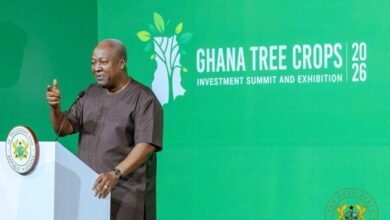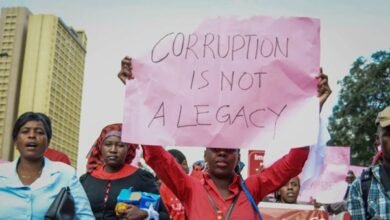Textile Industry : towards an African renaissance driven by industrialization
Afreximbank will start construction in July of a $5 billion integrated textile facility in Nigeria, as part of a vast continent-wide industrialization plan aimed at revitalizing the cotton sector, saving up to $4.7 billion annually, and creating 250,000 jobs. This highly ambitious program seeks to boost Africa’s textile industry—a sector generating $8 billion annually but still largely underexploited amid growing local demand and a competitive global market... Analysis.

At Afreximbank’s 32nd Annual Forum, held in early July in Abuja, a major announcement was made: starting this July, Afreximbank, in partnership with Arise IIP and Swiss manufacturer Rieter, will launch the construction of a $5 billion integrated textile plant in Nigeria, under the “Africa Textile Renaissance Plan.”
“Africa Textile Renaissance Plan”: cutting Nigeria’s textile imports by $4.7 billion annually and generating up to 250,000 local jobs
This major project aims to revive a long-dormant cotton industry. According to Benedict Oramah, outgoing President of the bank, this initiative could not only reduce Nigeria’s annual textile import bill by nearly $4.7 billion but also create up to 250,000 local jobs.
It is part of a broader economic transformation strategy: Afreximbank aims to increase cotton processing capacity to 500,000 metric tons over the next three to five years, with the potential creation of 500,000 jobs continent-wide. Efforts will also focus on localizing machinery maintenance, industrial assembly on site, and setting up training centers.
Industrialization is the cornerstone of Africa’s economic transformation
To implement this ambitious plan, Afreximbank, Arise IIP, and Rieter signed a memorandum of understanding on October 14, 2024, backed by $5 billion in financing. The goal: to establish a robust and sustainable industrial base.
Europe is also supporting the effort, with Switzerland contributing notably via the supplier Rieter. The latter commits to progressively establishing local assembly and maintenance units in Africa, starting with a site in Benin City, Nigeria.
Beyond its economic purpose, this plant addresses industrial and food security issues: less dependence and more value-added exports, notably to the United States under the AGOA (African Growth and Opportunity Act) agreement.
The emergence of a more resilient and self-reliant Africa
This announcement fits within Benedict Oramah’s closing speech at the forum, where he stated that “industrialization is the cornerstone of Africa’s economic transformation.” He recalled that since 2015, Afreximbank has mobilized over $155 billion in financing, with total assets increasing eightfold to nearly $40 billion—a result fueling his ambition to triple that figure within 10 years.
This textile project ranks among the major flagship operations announced during his tenure: alongside $4 billion for the Dangote refinery, $2.9 billion for the Rufiji hydroelectric dam (Tanzania), and a $750 million loan for Ghana, it demonstrates the emergence of a more resilient and autonomous Africa.

Economic context and ambitions
From an economic perspective, the textile plan fits within a dynamic continental framework: despite a historic expansion of imports (Nigeria’s textile imports doubled between 2019 and 2022, amounting to approximately $600 million according to the Nigerian National Bureau of Statistics), the objective is clear: reverse the trend, add value locally, and gain direct access to global markets.
A remaining challenge lies in technical implementation: the plan will be deployed on ARISE industrial sites equipped with adapted infrastructure (water, energy, gas), after countries are selected according to these technical criteria. Thanks to a clarified financing process (standardized documentation, turnkey offers), promoters hope to streamline project launches within two months.
Technical training centers to build local workforce skills
Deeply involved, Rieter will first install a maintenance and spare parts center within ARISE industrial parks, with a gradual ramp-up of assembly.
The entire chain will be complemented by technical training centers to ensure skill development for local workers.
This plan could mark a historic turning point for African textiles, transitioning from a raw material economy to a fully integrated, industrial, and globally competitive sector.
We must transform how Africa produces and consumes textiles by fostering sustainable, competitive solutions tailored to local and global markets
The African textile industry holds considerable potential for economic diversification and job creation across the continent. According to the United Nations Conference on Trade and Development (UNCTAD), Africa’s textile sector generates about $8 billion per year but remains largely underexploited in the face of growing local demand and a competitive global market. The continent imports nearly 60% of its textiles, resulting in heavy reliance on foreign products and limiting local value addition.
A fast-growing domestic demand for clothing and textiles
Opportunities abound: Africa’s population—estimated at 1.7 billion by 2030—is driving strong growth in domestic demand for clothing and textiles. Furthermore, regional integration policies like the African Continental Free Trade Area (AfCFTA) facilitate intra-African trade and can stimulate the local textile value chain. Finally, technological innovations and strategic partnerships, such as that initiated by Afreximbank, contribute to the sector’s modernization and competitiveness.
However, the industry faces several major challenges: insufficient infrastructure, lack of long-term financing, limited technical skills, and difficulties accessing international markets due to strict standards and Asian competition. The sector must also address environmental issues linked to textile production.
As Benedict Oramah, President of Afreximbank, highlighted during the bank’s 32nd Annual Meeting: “Industrialization is the cornerstone of Africa’s economic transformation. To succeed, we must master our value chains, reduce our dependence on imports, and invest in industries capable of creating sustainable jobs.”
Meanwhile, Boris Mirmont, CEO of Arise Integrated Industrial Platforms (IIP), emphasizes the need for a paradigm shift: “We must transform how Africa produces and consumes textiles by promoting sustainable, competitive solutions adapted to local and global markets.”






